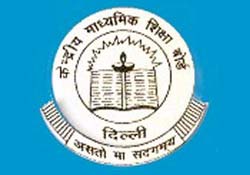Decoding grading system
 R. G. Sen has been teaching mathematics at a Kendriya Vidyalaya in Jaipur for the past 28 years. This October, the 52-year-old teacher was asked to grade his students on an additional criteria - their personal interaction with him.
R. G. Sen has been teaching mathematics at a Kendriya Vidyalaya in Jaipur for the past 28 years. This October, the 52-year-old teacher was asked to grade his students on an additional criteria - their personal interaction with him.
Used to objective evaluations, the new request left Sen flummoxed. “In the rush for holistic education, this new system is taking the focus away from basic studies,” he rued.
Sen, however, is not the only teacher with reservations against the Continuous and Comprehensive Evaluation System adopted by the Central Board of Secondary Education (CBSE). The new system, which has done away with the Class X board exams, involves a continuous evaluation of students through Classes IX and X on various parameters (see box). Students will get a common report card for Classes IX and X, at the end of two years. The report will carry grades instead of marks. Each grade represents a range of marks (eg: between 91 to 100 or 71 to 80).
Over 80 teachers from Central schools in Mumbai, Jaipur, Ahmedabad and others shared their apprehensions regarding the new grading system at a teacher-training workshop held in the city on Thursday. CBSE chairman and secretary, Vineet Joshi, personally interacted with teachers to clear their doubts.
Teachers made presentations on what they understood from the teacher-training manual prepared by CBSE. “Instead of fighting the system, we should explore the innovative teaching techniques it offers,” said Avnita Bir, principal of RN Podar School in Santacruz.
In the end, many teachers were convinced about the merits of new grading system. However, some raised doubts about how other boards would judge the common report card. Parents of most Central school students have transferable jobs. “If the child shifts to a non-CBSE school, how will his report card be judged?” asked Anand Motwani, a biology teacher from a Nashik Kendriya Vidyalaya.